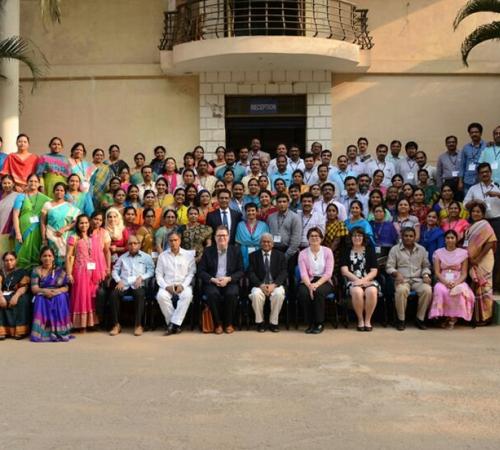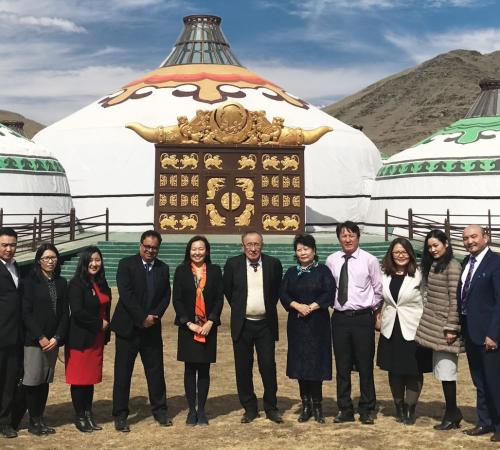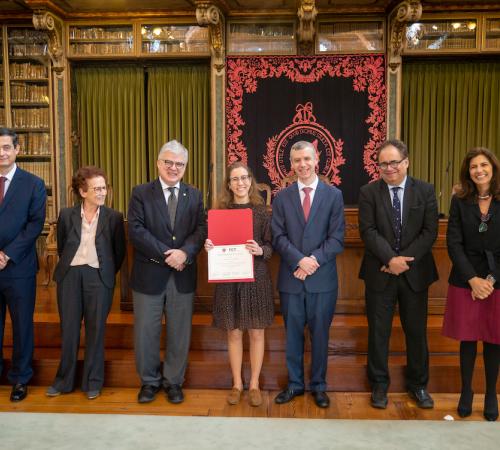Past Programs



The Training to Teachers (T2T) India program was a nine-month blended program that guided learners in their exploration of modern medical education pedagogy and innovative teaching techniques. The T2T-India program was an opportunity for instructors, both less experienced and season educators, to enhance their knowledge and skills in medical education. Throughout the course, participants engaged in individual and team projects which actively modeled instruction techniques.
A substantial amount of teamwork was expected throughout the program. Team assignments were designed to promote collaboration and apply the models being introduced. All students were expected to contribute and actively participate in team assignments.

The Training to Teachers Program–Mongolia program was an initiative between Harvard Medical School Postgraduate Medical Education, the Mongolian National University of Medical Sciences (MNUMS) and Mongolian Health Initiative (MHI). Training to Teachers was a blended-learning program that includes in-person workshops, online lectures, team projects, individual and team-based learning supplemented by interactive webinars taught by senior faculty from Harvard Medical School recognized for expertise in medical education, curriculum development, and evaluation.
The Training to Teachers program aimed to instruct established Mongolian doctors in modern teaching techniques emphasized at Harvard Medical School. These medical educational techniques include: learner-centered teaching, small-group teaching, systematic approaches to curriculum design and assessment, and team-based learning. Participants were able to directly apply these methods in their own teaching environments. Medical doctors, dentists, healthcare professionals, medical school administrators, and leaders were encouraged to apply.
Upon completion of the program, participants were able to:

Training to Teachers - China was a nine-month blended learning program taught by distinguished Harvard Medical School faculty. The program’s contemporary learning approach integrated traditional and novel pedagogic methods, skills-based training, and a Capstone Project.
Training to Teachers - China aimed to develop highly skilled clinical educators who could apply educational theories and best teaching practices to instruct medical students and physicians in training, and thereby meet future medical workforce needs.
Training-to-Teachers comprised two three-day workshops, the first in China and the second in Boston at the end of the program, with online learning modules delivered throughout the program. Program participants spent 7-10 hours per week studying online material and recommended readings.
Participants had exclusive access to recorded online lectures covering the program’s modules and interactive webinars for topic discussions. The Capstone Project represented a practical application of the skills gained, and covered topics such as course development, curriculum design, and application of new approaches to assessment.

Global health care leaders must have expertise in leadership management, health care finance, and human resource management to maintain excellence in service and patient care. The Harvard Medical School China Leadership in Medicine Bridge (CLIMB) with Harvard Hospital Leadership and Management (LEAD) program was developed to ensure that emerging health care leaders in China have access to the world’s leading authorities in safety, quality, complex organizational management and health leadership.
CLIMB-LEAD was a one-year certificate program consisting of three residential workshops (in Shanghai, China, and Boston, MA, USA), pre-recorded lectures and interactive webinars focused on relevant and complementary topics. The program was designed for senior-and executive-level hospital, primary care, recuperative care, community, and other health care facility administrators, chiefs of staff, hospital board members, chief nursing officers, department directors, and other health care professionals with supervisory, management, or executive-level responsibilities.

The Harvard Medical School China Clinical Trials program provided clinicians and clinician-scientists advanced training in the methods and conduct of clinical research. In addition to covering basic concepts in epidemiology, biostatistics, study design, and research ethics, the course tapped into a global network of like-minded colleagues to foster an exchange of information and the opportunity to collaborate.
The program took a deep dive into the workshop curriculum through various modes of learning. Through lectures on hospital operations and site visits, participants received a behind-the-scenes look at how safer, higher quality health care is delivered in Harvard Medical School-affiliated hospitals. Participants also gained access to the latest innovation and expertise from hospital leaders through Harvard Business School case studies and panel discussions. Course faculty addressed the curriculum using a selected quality or safety challenge to help translate knowledge into practice.
Program Objectives:

The program curriculum includes seven intensive two-day workshops over the two-year curriculum, twice-weekly online recorded lectures, development and presentation of two Capstone proposals, working in teams, and satisfactory completion of all assessments. All activities are supported by interactive webinars held by Harvard faculty.
The PTCSRT program is a collaboration between HMS and Fundação para a Ciência e a Tecnologia (FCT). It is fully supported by the Portuguese government through FCT, and is tuition-free for accepted students.

Harvard Medical School CLIMB CSRT will develop this expertise through an understanding of the generation, analysis, interpretation, and presentation of clinical research data for publication. The goal of this program is for participants to attain fundamental knowledge in four key areas that comprise clinical research mastery–epidemiology, biostatistics, programming, and scientific communication.
The program curriculum consists of approximately 70 recorded online lectures, including seven foundation courses. Lectures are supported by live interactive webinars and face-to-face workshops. Throughout the program, scholars are expected to develop and present two team-based assignments (research proposal and ethics) and a research capstone project to give each scholar the experience of submitting a research grant proposal.
© 2025 by the President and Fellows of Harvard College